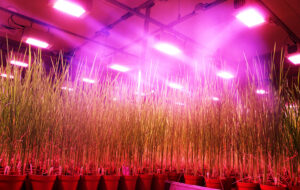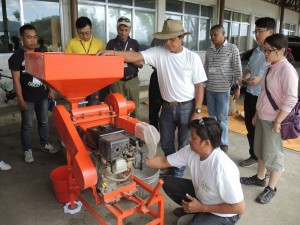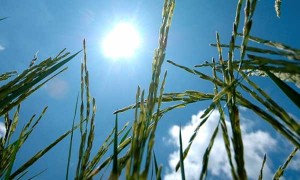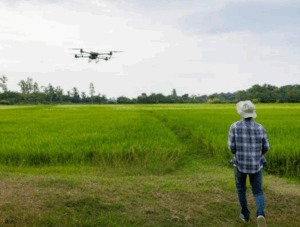Pokkali, an heirloom rice variety indigenous to Kerala in India, is gaining attention for its salt-tolerant trait.
Traditionally cultivated with no fertilizer or pesticide, the variety has gained popularity outside the state in recent years as more rice researchers study its potential for areas affected by saltwater intrusion due to climate change.
Pokkali is also flood-tolerant and does not lodge easily despite its tall stature.
Read the full story at Mint Lounge
More on salt-tolerant rice varieties:
Rice against the tide
A new breed of rice is helping Filipino farmers in Bohol cope with seawater encroaching on their paddies. But in the race against climate change impacts such as rising sea levels, will rice scientists be able to stay one step ahead of the game?
A glimmer of hope for Vietnam’s white gold
Vietnam’s rice industry has been beset with challenges because of climate change, particularly in its regional granaries—the Red River Delta and the Mekong River Delta. These major rice-growing areas are increasingly becoming vulnerable to saltwater intrusion and flooding caused by sea-level rise. To secure enough rice for the almost 90 million Vietnamese and the people of other nations, Vietnam’s rice industry must soon adapt to the adverse impacts of climate change. Maintaining rice productivity also means sustained livelihood and income for many Vietnamese farming communities.
Myanmar partners produce high-yielding salinity-tolerant rice varieties
Sixty farmers participated in evaluating new salinity-tolerant rice varieties in a farmer’s field in Meikhtilar District, Mandalay, in December 2015. Of the participants, 43 were males and 17 were females. The participatory selection of varieties aimed to identify new high-yielding varieties that could adapt to the conditions in Mandalay, and to determine the role gender plays in choosing varieties. The activity was also conducted for the farmers themselves to select the best varieties, and become aware of the sustainable adoption of improved varieties in stress-prone environments.








Can I have Pokkali rice seeds?
Can you mail to Japan?
Please email Marionette Alana regarding your request.